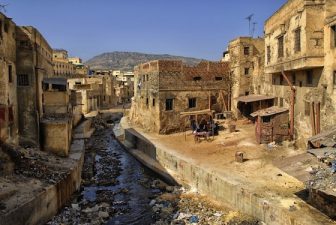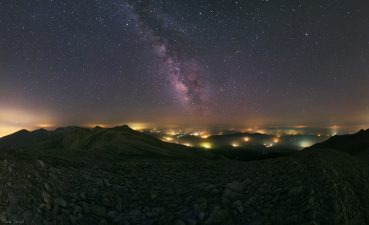 International water management policies in Morocco have disrupted the Berber’s perfectly good and longstanding system.
International water management policies in Morocco have disrupted the Berber’s perfectly good and longstanding system.
In 2009 I travelled to the High Atlas mountain region of Morocco to reach some friends that ran an eco-lodge in a very lonesome village with a wholesome lifestyle. The mother of Houssa, the owner of the eco-lodge, revealed the interesting methods used in the Berber tradition to manage their water supply. Sadly, these indigenous traditions have been falling apart since dam projects funded by the World Bank have disrupted local practices. “Now families are fighting over water, this was never the case in the past, our system was perfect, we don’t know why international organizations have come to help” Houssa’s mother said.
Water allocation methods
Water allocation methods used by the Berbers depend on two things: Land Tenure and Time. First Land Tenure is divided by elevation and the paths of springs. Land above the spring is used for seasonal grazing and land below for agriculture and personal use. And the organization of land-ownership is designated by tribe – so any water issues that arise are discussed between different tribes.
Second, Berbers allocate water by time, not quantity. This is true whether the allocation is between villages, between lineages (large extended family units), or between individual users. Careful allocation schedules are decided unanimously and set by days of the week.
So, three days for the upstream riparian and four for the downstream riparian, then by days between villages and finally hours between family lineages. This is because different times of the day have different evaporation rates throughout the year, so the schedule is methodologically designed to respect the natural water flow while ensuring fair allocation for all.
Allocating water benefits by time vs. volume
Allocating by time rather than volume has two benefits. The first is sustainability: water allocation by time respects the fluctuations of water supply of the river due to climatic conditions. Water is allocated according to the rate of available water flow rather than according to estimated absolute quantity in volumetric terms.
Two units of time (hours for instance) equate different volumes of water depending on the season and climatic conditions, two units of volume always equate to the same amount but do not follow the rates of water flow (availability). The Berber system avoids the kind of over-allocation that has been happening along the Colorado River and has resulted in a perpetual shortage.
This system encourages greater efficiency of water use. For instance, Berbers deal with a fluctuating supply of water by prioritizing. The highest priority is drinking water for humans and animals, followed by irrigation water and water for mills. Irrigation water brought to land through modern means and to bring new lands into cultivation is given the least priority.
Finally, water allocation can be bought and sold through units of time rather than volume; this avoids the need for storage and again respects the effective quantity of water available in nature at that time.
International organizations do more harm than good
Although it is true that these methods may only be efficient when populations are relatively small and manageable, it is also obvious that these indigenous methods have worked relatively well up till now and that “modern” initiatives may disrupt the system and create tensions between families, villages and tribes – creating new problems.
The international preoccupation with reaching the seventh millennium development goal: “Halve, by 2015, the proportion of the population without sustainable access to safe drinking water and basic sanitation,” risks indigenous watershed management systems being hastily overlooked.
This may result in international organizations, that mean well, doing more harm than good. In this specific case, local farmers argue that the World Bank’s initiative to build new dams has destroyed secular water allocation methods because some of the streams have dried up.
The moral of the story is very simple: more than “Think before you act” or “Look before you leap,” International organizations should actively observe and seek to integrate their initiatives with local practices. Of course, this is perhaps easier said than done.
More on Berber Culture and Tradition:
Semi-Sustainable Berber Agriculture
Making Cobras Swoon is Not so Charming
Moroccan Love Potion Spiced With Pot




Hello,
I’m interested in the subject of renewable energy and sustainable development in rural areas in Morocco and I would like to be in contact with the writer of this article “Linda Pappagallo”, can you please give me her e-mail? Thank you